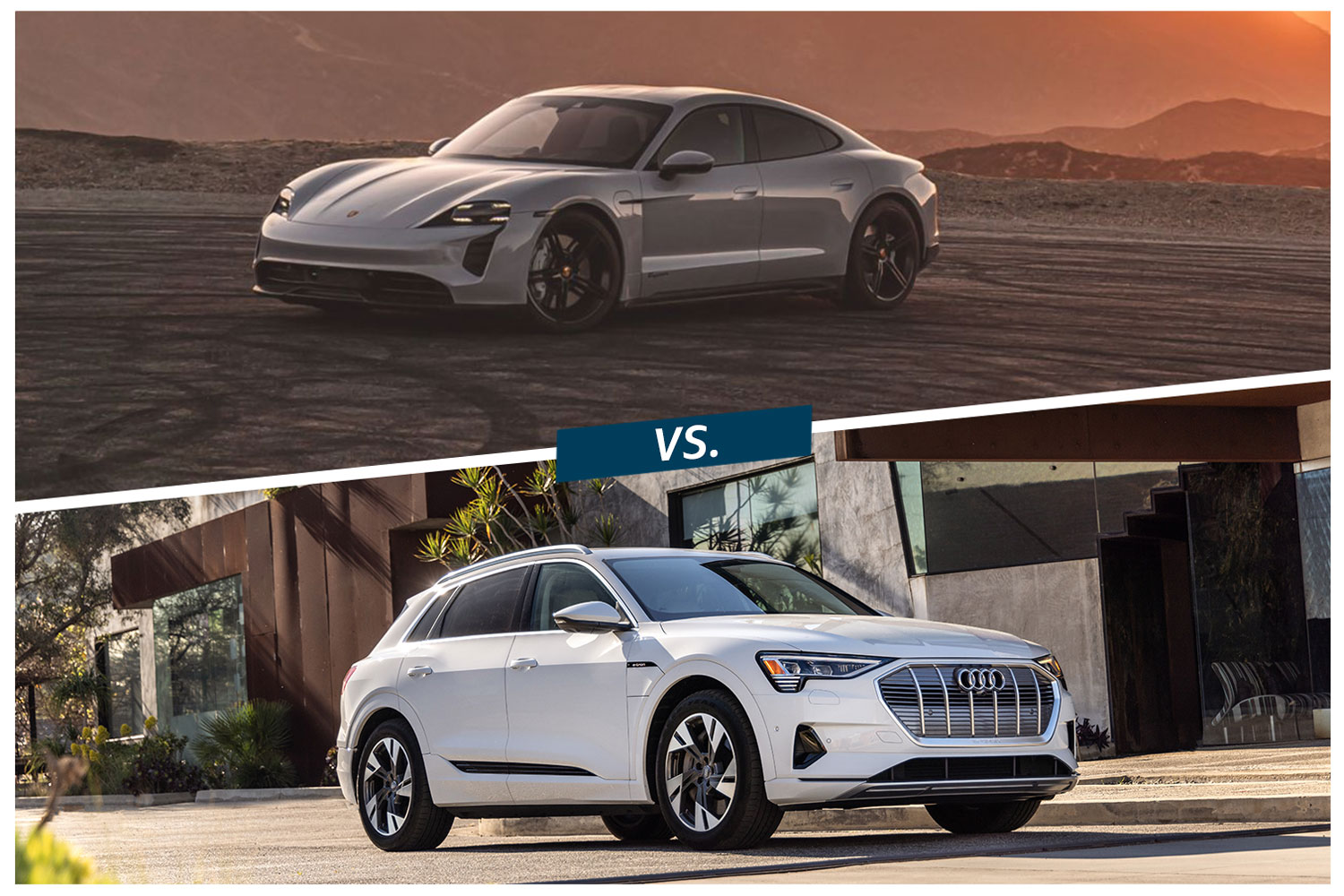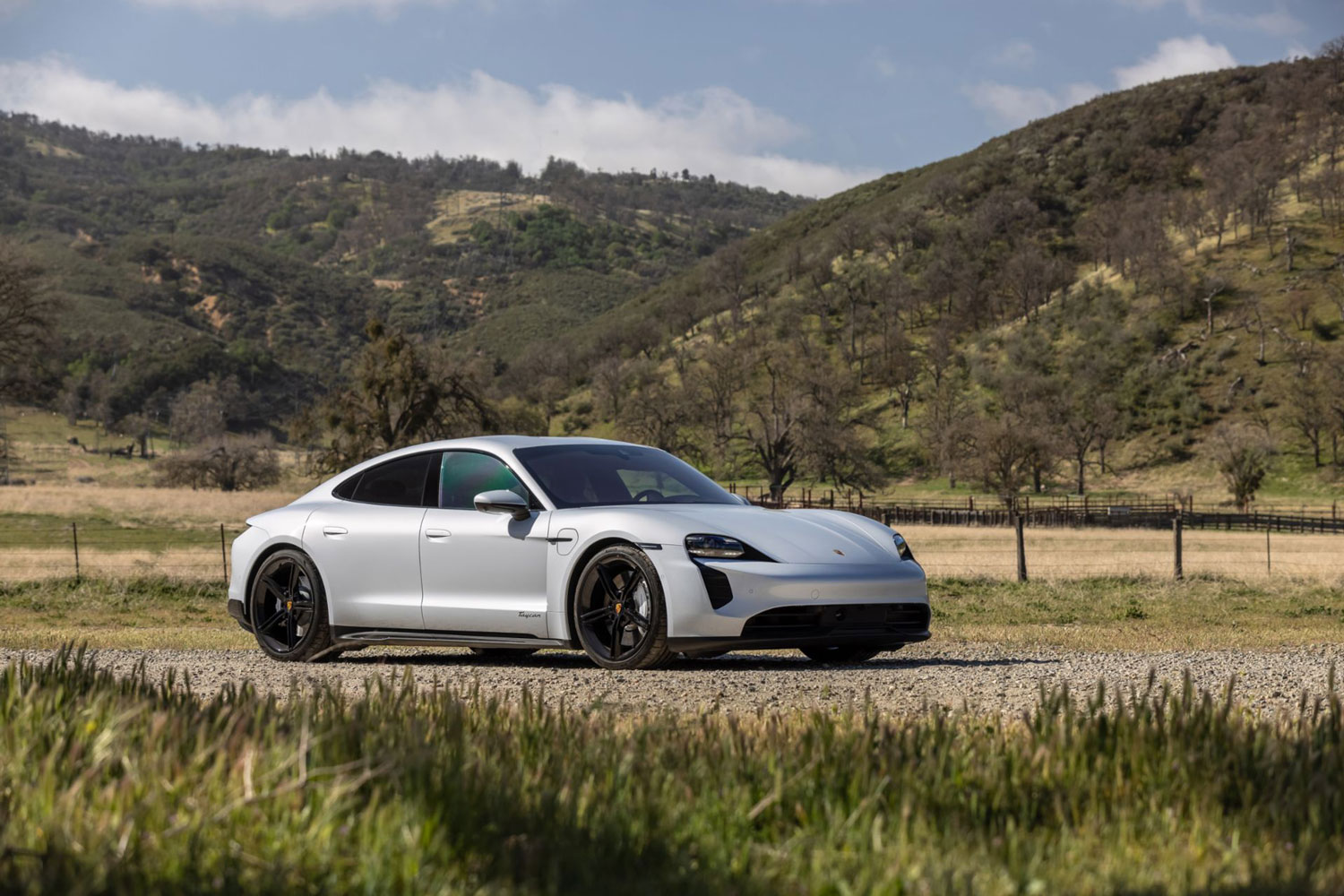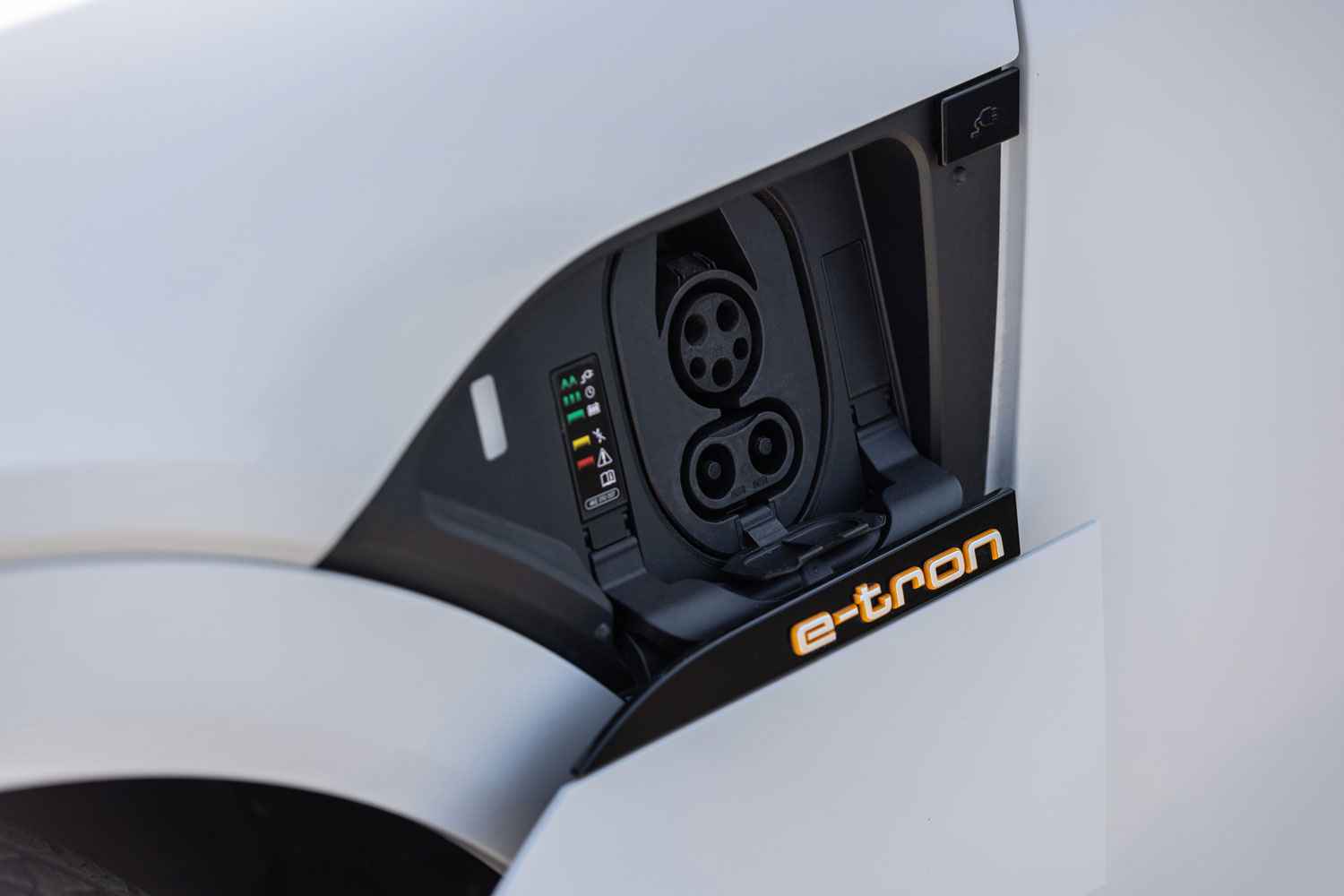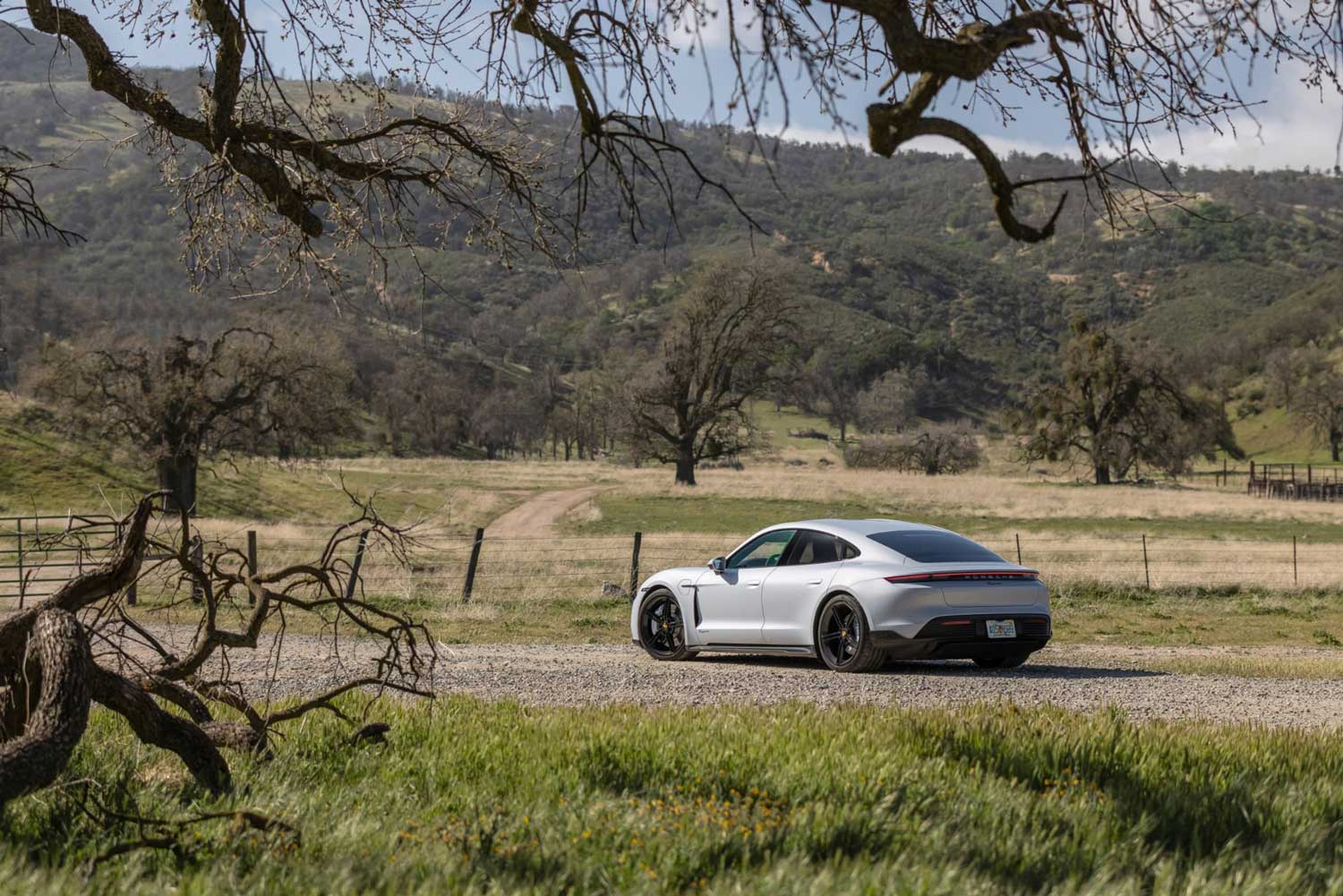Compared: 2023 Audi e-tron vs. 2023 Porsche Taycan
The 2023 Porsche Taycan and 2023 Audi e-tron are ready for an all-out assault on the Tesla Model S and Model X.
 Porsche | Audi
Porsche | Audi
With the Porsche Taycan outselling the Tesla Model S and Model X by more than a two-to-one margin for nearly all of 2021, and the Audi e-tron quietly surpassing the Tesla Model X in sales here in North America, the premium luxury electric vehicle (EV) market may become less about Tesla and more about the resurgence of Porsche and Audi.
Both brands are part of the Volkswagen manufacturing conglomerate, which will be investing nearly $90 billion in EVs over the next five years. But even with all the similar and expensive family DNA bettering Tesla, the 2023 Taycan and e-tron still have stark differences when it comes to price, range and performance.
 Porsche
Porsche
2023 Audi e-tron vs. 2023 Porsche Taycan: Price
The 2023 Audi e-tron is the shrewd value leader of the two luxury EVs, especially in Premium trim, with a manufacturer’s suggested retail price (MSRP) of about $72,000. That’s roughly $5,000 more expensive than a base Tesla Model Y. However, the Audi is still eligible for the current $7,500 federal tax credit. The Tesla is not.
The options list for the e-tron Premium is short, starting with a $750 towing package that allows the Audi to haul up to 4,000 lbs. You can also add rear passenger side airbags for $400. A $3,500 convenience package offers a litany of real-world safety features such as the 360-degree camera system that offers drivers a panoramic view of their surroundings.
The all-electric 2023 Porsche Taycan is much more performance-focused than its electric Audi SUV cousin, especially the Taycan 4S (about $108,000), which flies from 0 to 60 mph in only 3.8 seconds.
The options list still remains to be seen for 2023, but Porsche’s methodical personalization of all ten versions of the 2023 Taycan, from the base sedan ($88,000 or so) to the Taycan Turbo S (about $189,000), could be a dream come true for buyers who want to build a top-of-the-line sports car that is rare, valuable, and difficult to imitate.
 Audi
Audi
2023 Audi e-tron vs. 2023 Porsche Taycan: Range
The Audi e-tron and Porsche Taycan base sedan feature an all-wheel-drive powertrain that provides an Environmental Protection Agency estimated all-electric range of around 200 miles. The Audi takes 10 hours to completely charge from zero to 100% on a Level 2 charger, a half-hour longer than the entry-level Taycan.
A 150-kW fast charger provides an 80% charge in 30 minutes for the Audi, with Porsche’s more advanced 270-kW fast-charging system promising even quicker replenishment times for all Taycan models that have access to Level 3 chargers. Improved cooling and heating of Porsche’s battery along with software upgrades will likely yield up to 320 miles of real-world range.
 Porsche
Porsche
2023 Audi e-tron vs. 2023 Porsche Taycan: Performance
The all-wheel-drive Audi e-tron is not the quickest EV with a 0-to-60 time of 5.5 seconds. But its overall ride has received acclaim from enthusiasts and quality-focused reviewers who realize that fun in the real world often means designing a vehicle that can handle the rough roads as well as the smooth ones.
The Porsche Taycan is a Tesla Model S competitor in higher trim levels with horsepower ranging from 469 hp to 750 hpr in the Turbo S. The Taycan offers an adaptive air suspension that can swallow up some of the worst third-world roads in an urban city, while also hunkering down into a class-leading canyon-carver when the drive changes from fraught to perfectly balanced.
The 2023 Porsche Taycan and 2023 Audi e-tron are two exceptional, real-world performers from a manufacturer that has outsold the Tesla Model S and Model X. Keep them on your short list.
Written by humans.
Edited by humans.
 Steven Lang
Steven LangSteven Lang is a special contributor to Capital One with nearly two decades of experience as an auto auctioneer, car dealer, and part owner of an auto auction. Some of the best-known auto publications turn to him for his expert insight. He is also the co-developer of the Long-Term Quality Index, a survey of vehicle reliability featuring over two million vehicles that have been inspected by professional mechanics.
Related articles
View more related articles